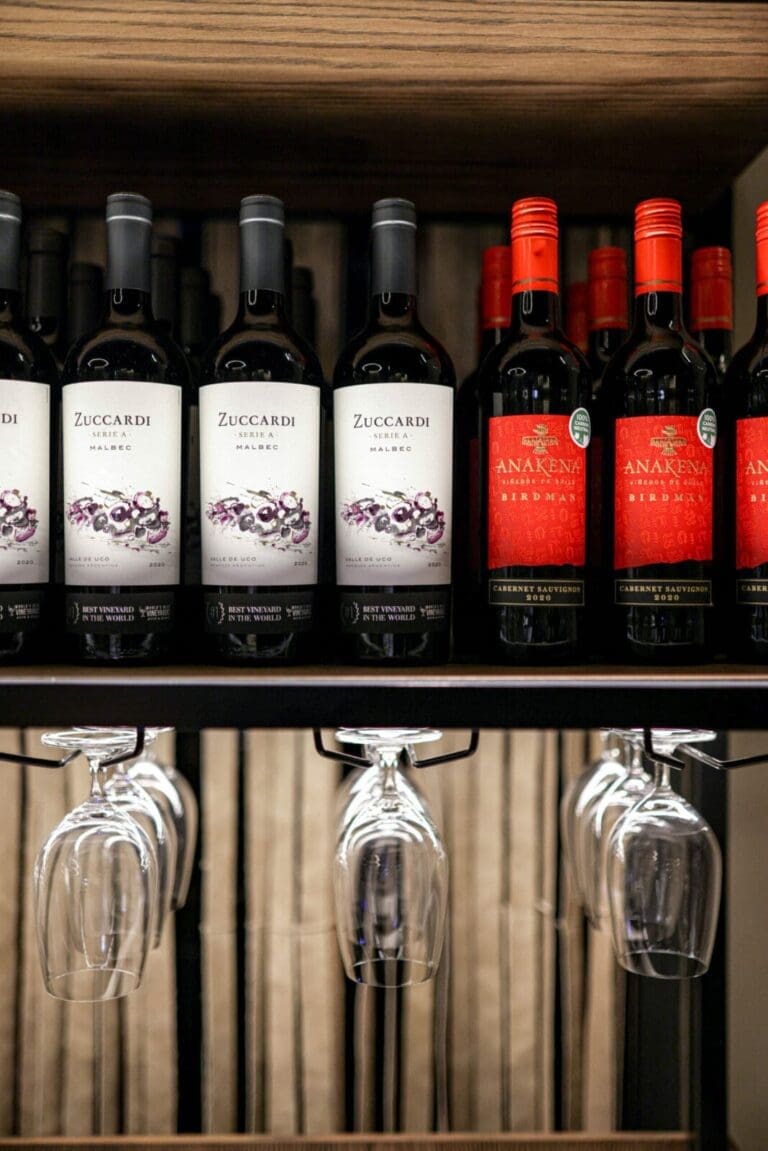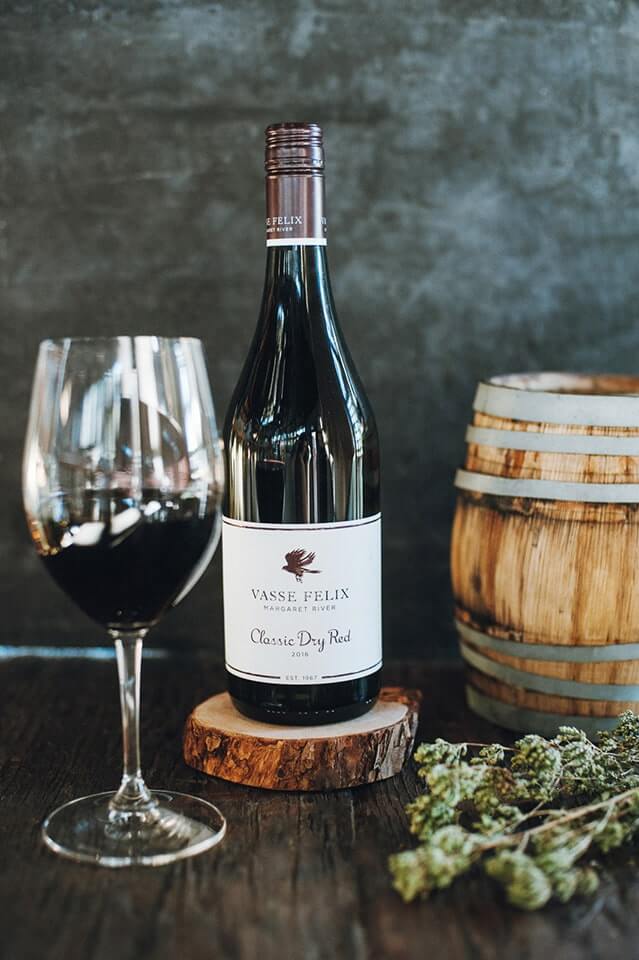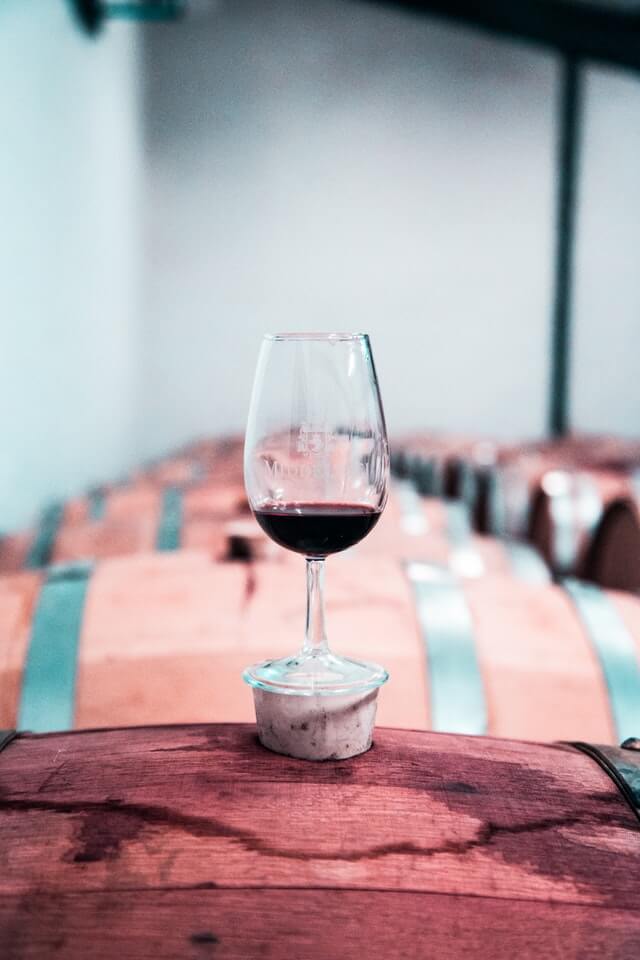Our checklist of top 10 points to ensure your wine is a fit for your Hunter & Barrel feast
When it comes to wining and dining, some of us go with what we like, while others will select a completely different glass or bottle depending on the dish they are devouring. But is one enjoying their meal more than the other? Perhaps!
The overall goal in selecting a wine to accompany our food is to balance the characteristics of the wine – body, sweetness, tannins, acidity and alcohol level – with the flavour, textures and qualities of the dish, so that the wine does not overpower the food, and vice versa. If that sounds like a science experiment rather than a fun night out with friends, read on for the Hunter & Barrel cheat sheet on what to look for in your wine to make sure it’s a match.
Body
The weight and texture of your meal needs to mirror the body of the wine to create the perfect balance of flavour. This means pairing lighter foods, typically low in fat and sodium, with more delicate wines such as a white Pinot Gris or even a light red like Pinot Noir. The same is true for heartier foods: they are rich and high in fat and therefore require a full-bodied red wine such as a Cabernet Sauvignon or Shiraz.
Sweetness
The general rule is to serve a wine at least as sweet or sweeter than the food. Sweet wines with a good level of acidity, such as Sauternes, are an ideal match for rich or salty foods such as foie gras or blue cheeses, because the acidity will cut through the fat or ‘tang’ and the wine’s sweetness will complement the richness of the food. Semi-sweet wines such as a Riesling are also a good choice to serve with spicy food because the slight sweetness in these wines complements the bold spices of the food to create a delicious flavour combination.
Acidity
The more acidic the wine, the better it will cleanse the palate. High acid wines such as Riesling, Pinot Gris and Sauvignon Blanc are ideal to pair with acidic, oily, salty or butter-rich foods.
Tannins
Tannins are naturally occurring molecules which are extracted from grape skins, seeds, stems and oak barrels, and create the bitter, drying sensation we experience on our tongues with some wines. Tannins help cleanse the palate, and wines with high tannin content therefore match well with fatty foods. Your wine will then counteract the richness of your food and conversely, your food will balance the astringency of your wine.
Alcohol
The percentage of alcohol in a wine can influence a wine’s ability to pair with certain types of foods. Wines with lower alcohol levels typically pair best with salty and spicy foods, and high alcohol wines with fatty dishes such as steaks, as the fat can lessen the intensity of the alcohol.
Congruent Pairing
Another approach to wine pairing is to put all your eggs in one flavour basket! Congruent pairing means you opt for a wine that shares the same dominant elements in your food. For example, a seabass fish with lemon sauce and a glass of Pinot Gris both have citrus flavours and work well together.
Sauce
Sometimes overlooked when it comes to wine pairing, but don’t forget a sauce selection is a powerful part of our meal. Again, it’s a good idea to make sure the key flavours in both your wine and sauce are a match. So, for example, a garlicky, onion-heavy chimichurri works well with a medium red wine with more acidity such as a Côtes du Rhône, while a creamy peppercorn sauce pairs with the peppery notes of a Cabernet Sauvignon or Shiraz.
Quality
Obvious to some, but if you’re excited about tucking into an exceptional quality meal – like you’ve come to expect from Hunter & Barrel Dubai and Abu Dhabi! – don’t risk dampening the experience with a lesser quality wine.
Region
It is often suggested that wines and dishes from the same place make the perfect partners. This is based on the logic that the same nutrients and minerals will be absorbed by both the grapes and produce grown in one area, and they are all exposed to the same weather patterns and surroundings.
Personal Choice
If you don’t like a wine, you don’t like it, and that won’t change because an expert tells you it’s the perfect choice for your meal! And so, while it helps to have a basic understanding of food and wine pairing, the most pleasurable glass will always be the one you prefer.


